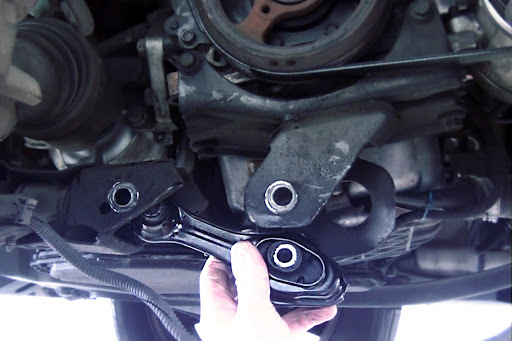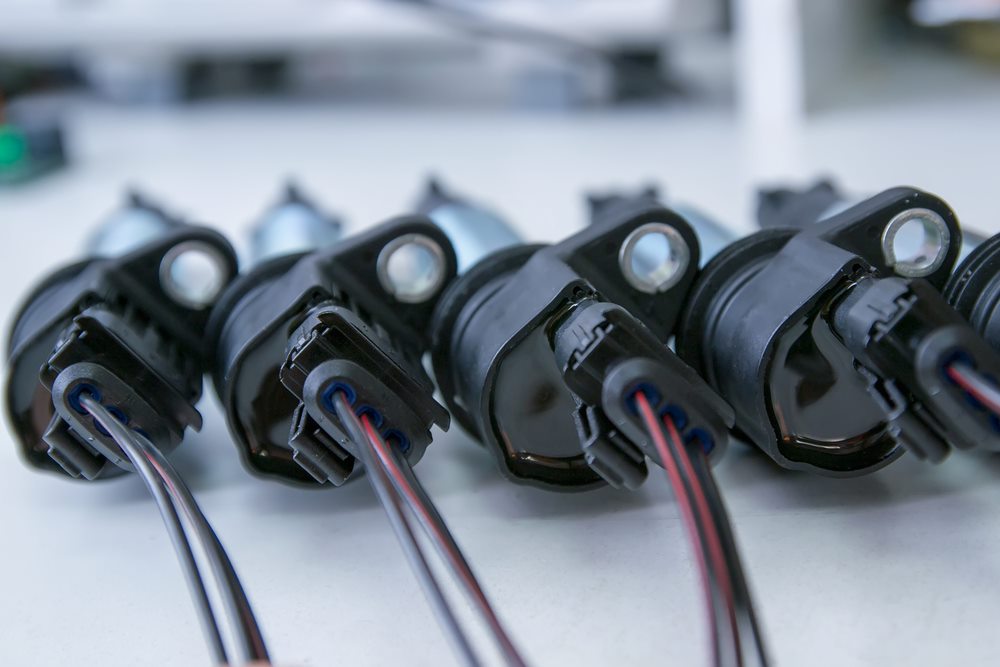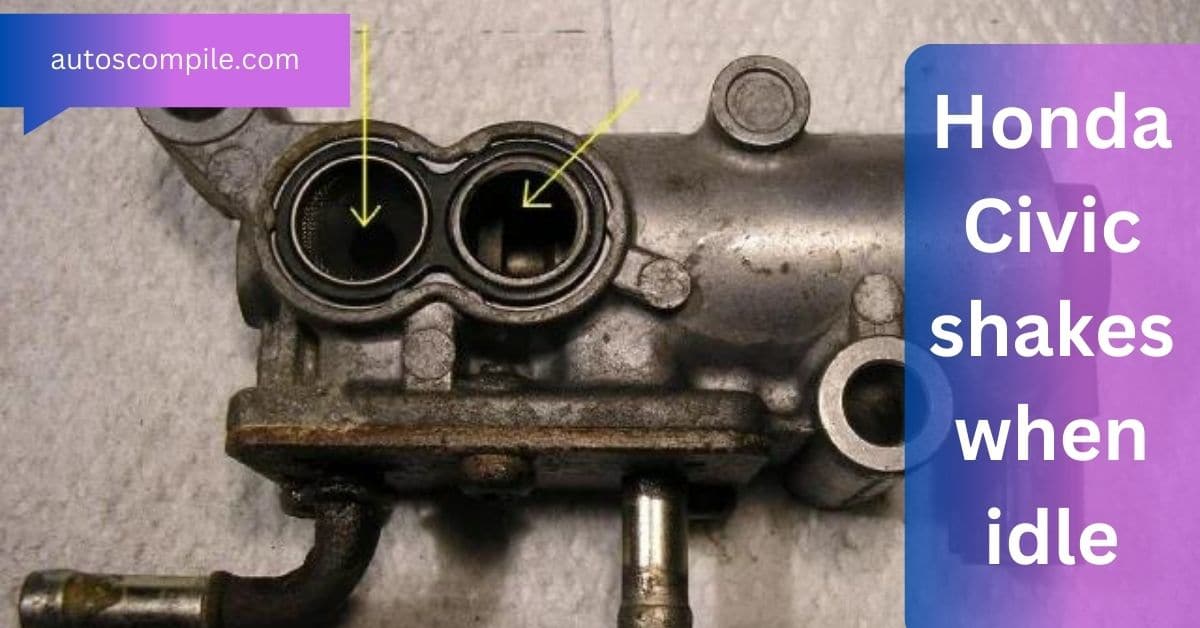When my Honda Civic started shaking when idle, it turned out to be a worn motor mount. After replacing it and checking the spark plugs, the issue was resolved. Regular maintenance saved me from costly repairs!
If your Honda Civic shakes when idle common causes include engine misfires, worn motor mounts, or faulty spark plugs. Regular maintenance and prompt repairs can resolve the issue. Address it early to avoid further damage.
When my Honda Civic shook at idle, it felt like something was seriously off. A quick fix on the motor mounts and spark plugs made it run smoother than ever!
What Does Honda Civic Shake When Idle Mean?

The term Honda Civic shakes when idle refers to a situation where the vehicle experiences noticeable vibrations or shaking while the engine is running, but the car is stationary-such as when it is stopped at a red light or parked with the engine on.
This issue can occur due to various potential causes, including engine misfires, worn motor mounts, faulty spark plugs, vacuum leaks, or transmission problems.
The shaking may vary in intensity and could indicate that certain vehicle components are not functioning properly, requiring diagnosis and repair to ensure smooth operation.
Why Does My Honda Civic Shake When Idle?
If your Honda Civic shakes when it’s not moving, it might be due to a few common issues:
Common Causes
- Engine Misfire: A problem with one of the engine’s cylinders can cause vibrations.
- Worn Motor Mounts: If the mounts that hold the engine in place are worn out, they can cause the car to shake.
- Faulty Spark Plugs: Worn or dirty spark plugs can lead to rough idling and shaking.
- Vacuum Leaks: Air leaks can disrupt the engine’s performance, causing it to shake.
- Transmission Problems: Issues with the transmission can cause vibrations when the car is idle.
Common Causes Of Shaking While Idling:
If your Honda Civic shakes when it’s idling, several issues could be at play:
- Engine Misfire: An engine misfire happens when one or more cylinders fail to fire properly, causing the engine to run unevenly and shake.
- Worn Motor Mounts: Motor mounts secure the engine to the car’s frame. Over time, they can wear out or break, leading to increased vibrations and shaking.
- Faulty Spark Plugs: Spark plugs ignite the fuel in the engine. If they’re old or dirty, they may not fire correctly, causing rough idling and shaking.
- Vacuum Leaks: A vacuum leak allows extra air into the engine, disrupting the air-fuel mixture and causing uneven running and shaking.
- Transmission Issues: Transmission problems, such as slipping or rough shifts, can also cause vibrations when the car is stationary.
Symptoms of Honda Civic Shaking When Idle:
If your Honda Civic shakes while idling, you might notice several symptoms that can help pinpoint the issue. You might see the engine warning light come on, indicating a problem that needs attention.
Additionally, you may hear rough idling sounds or vibrations coming from the engine compartment. Decreased fuel efficiency can also be a sign that something is wrong, as the engine may not be running optimally.
Observing these symptoms can help determine if the shaking is due to a more serious problem requiring professional diagnosis and repair.
Engine Misfires:
An engine misfire occurs when one or more of your Honda Civic’s cylinders fail to ignite the fuel-air mixture properly. This can cause a noticeable shake or vibration while the car is idling.
1. How to Detect an Engine Misfire?
You might notice several signs of an engine misfire:
- Decrease in Power: When accelerating, the car may feel sluggish or less responsive.
- Rough Engine Sound: The engine might produce an uneven or choppy sound.
- Shaking or Vibrations: The car could vibrate noticeably when it’s stopped and idling.
2. Possible Causes of Misfires:
Misfires can be caused by various issues, including:
- Faulty Spark Plugs: Worn or dirty spark plugs can fail to ignite the fuel properly.
- Ignition Coil Problems: Issues with ignition coils can lead to incomplete combustion.
- Fuel System Issues: Fuel injectors or pump problems can affect fuel delivery.
- Low Engine Compression: Worn engine components can reduce compression and cause misfires.
Motor Mount Problems:

Motor mounts are crucial components that secure the engine to the vehicle’s frame and help absorb vibrations. When these mounts become worn or damaged, they can cause noticeable shaking, especially while idling.
1. Signs of Worn or Broken Motor Mounts:
If your motor mounts are failing, you might experience:
- Excessive Vibrations: You may feel increased shaking inside the cabin, particularly when the car is idling or accelerating.
- Engine Movement: The engine may shift more than usual, especially noticeable when shifting gears or starting the car.
- Clunking Noises: You might hear unusual clunking or banging sounds when the engine or car is in gear.
2. Replacing Worn Motor Mounts:
Replacing worn motor mounts is essential to restore smooth operation and prevent further damage. If you suspect motor mount issues, having them inspected and replaced by a mechanic can help ensure your vehicle runs smoothly and reduces vibrations.
Vacuum Leaks:
Vacuum leaks occur when unwanted air enters the engine’s intake system, disrupting the proper air-fuel mixture needed for smooth engine operation. This can lead to uneven running and shaking, especially when the car is idling.
1. How to Identify a Vacuum Leak?
You might notice a vacuum leak if you experience:
- Hissing Sounds: Listen for a hissing noise near the engine, which can indicate escaping air.
- Rough or Unstable Idle: The engine might run unevenly or shake while the car is stopped.
- Decreased Engine Performance: The car may feel less responsive and have poor acceleration.
2. How to Fix a Vacuum Leak?
Fixing a vacuum leak involves locating and repairing the source of the leak. This might include replacing damaged hoses, tightening loose connections, or sealing gaskets. For a thorough diagnosis and repair, it’s often best to consult a mechanic to ensure all leaks are addressed properly.
3. Fuel Injector Issues:
Fuel injectors are responsible for delivering fuel into the engine’s combustion chambers. When they malfunction, they can cause uneven fuel delivery, leading to shaking and rough idling.
4. Symptoms of Failing Fuel Injectors:
You might notice several signs that your fuel injectors are failing:
- Rough Idle: The engine may shake or run unevenly at idle.
- Poor Fuel Efficiency: You might see a decrease in miles per gallon as the engine struggles to get the right amount of fuel.
- Loss of Power: The car may feel sluggish or less responsive during acceleration.
- Engine Warning Light: The dashboard light might turn on, indicating a problem with the fuel system.
5. How to Address Fuel Injector Problems?
To fix issues with fuel injectors, you can start with:
- Cleaning the Injectors: Sometimes, a thorough cleaning can resolve minor issues.
- Replacing Faulty Injectors: If cleaning doesn’t help, replacing the faulty injectors may be necessary.
- Regular Maintenance: Ensuring regular maintenance can prevent future problems and keep the fuel system running smoothly.
For best results, consider consulting a mechanic to properly diagnose and address fuel injector issues.
Spark Plugs And Ignition Coil Problems:

Spark plugs and ignition coils play a vital role in the combustion process of your Honda Civic’s engine. They work together to ignite the fuel-air mixture in the cylinders. If either of these components is faulty, it can lead to rough idling and shaking.
1. How to Check Spark Plugs and Ignition Coils?
You might notice issues with spark plugs or ignition coils if:
- Worn Spark Plugs: Look for signs of wear or corrosion on the spark plugs. They should be replaced if they appear dirty or damaged.
- Damaged Ignition Coils: Check for cracks or damage on the ignition coils. They are essential for providing the correct electrical spark.
- Engine Misfires: Use a diagnostic tool to detect misfires in specific cylinders, which can indicate a problem with the spark plugs or ignition coils.
2. Replacing Worn Spark Plugs and Ignition Coils:
If spark plugs or ignition coils are worn out, replacing them is a straightforward fix:
- Replace Spark Plugs: New spark plugs can improve engine performance and reduce shaking.
- Replace Ignition Coils: Faulty ignition coils should be replaced to ensure consistent spark and smooth engine operation.
Regular maintenance of these components can prevent problems and keep your engine running smoothly.
Solutions of Honda Civic Shakes When Idle:
If your Honda Civic is shaking when idle, it can be caused by various issues. Here are potential solutions based on the common causes:
1. Replace Worn Spark Plugs:
- Problem: Faulty or worn spark plugs can lead to poor ignition and engine misfires, causing the car to shake.
- Solution: Replace old or damaged spark plugs with new ones. Regularly checking and replacing spark plugs as part of maintenance can prevent this issue.
2. Fix Engine Misfires:
- Problem: Misfires in one or more engine cylinders can lead to uneven performance, causing the engine to shake.
- Solution: A mechanic should diagnose which cylinder is misfiring and repair or replace components like spark plugs, ignition coils, or injectors.
3. Inspect and Replace Worn Motor Mounts:
- Problem: Motor mounts are responsible for absorbing vibrations. If they are worn or broken, the engine vibrations can transfer to the car, causing shaking.
- Solution: Replace worn-out motor mounts to reduce engine vibrations. Ensure proper installation for maximum effectiveness.
4. Clean or Replace Fuel Injectors:
- Problem: Clogged or malfunctioning fuel injectors can cause uneven fuel delivery, leading to rough idling.
- Solution: Clean the fuel injectors using a fuel injector cleaner or replace them if they are severely clogged or damaged.
5. Repair or Replace the Idle Air Control Valve (IACV):
- Problem: A faulty idle air control valve can cause incorrect airflow at idle, leading to uneven engine idling and shaking.
- Solution: Cleaning or replacing the idle air control valve can restore proper idle performance.
FAQs:
1. Does the car’s age affect idle shaking in a Honda Civic?
Yes, as components age, they wear out, leading to issues like rough idling and shaking.
2. Can a misaligned serpentine belt cause idle shaking in a Honda Civic?
A misaligned or worn serpentine belt can lead to engine vibration and shaking when the car is idling.
3. Could using the wrong octane fuel cause my Honda Civic to Shake when idle?
Yes, using a lower octane fuel than recommended can cause knocking and misfires, leading to rough idling.
4. Is a clogged exhaust system a potential cause of idle shaking in my Honda Civic?
A clogged exhaust can prevent proper airflow, which may lead to rough idling and shaking.
Conclusion:
If your Honda Civic shakes when idle it’s likely due to issues like engine misfires, worn motor mounts, or faulty spark plugs. Regular maintenance and timely repairs can prevent further damage. Addressing these issues early ensures smooth performance and avoids costly repairs down the road.

